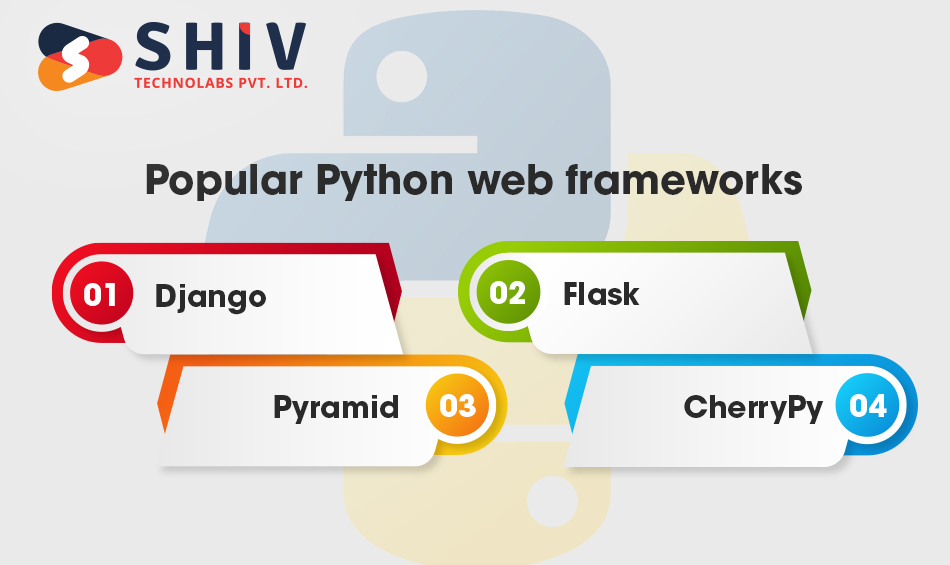Python is a universal programming language that is valued for its readability, speed, and simplicity of learning. It provides robust solutio...
Python is a universal programming language that is valued for its readability, speed, and simplicity of learning. It provides robust solutions due to its feature-rich libraries and frameworks and hence, it becomes the preferred choice of developers to develop scalable, secure and maintainable web applications.
This guide will help you in using Python for web development, from selecting Python and its famous frameworks to using libraries that can accelerate your development process.
Why choose Python for web development?
- Readability and simplicity: Python's code is clear and straightforward which makes it easier to write and maintain. This readability, in effect, shortens the development life cycle because less time is spent in understanding the code.
- Rich ecosystem: Python has a great number of libraries and frameworks that can help in the tasks of web development, including everything from building complex applications to handling data analysis.
- Versatility: Python is very user-friendly, thus it can be used for scripting, back-end programming, data manipulation and so on.
- Scalability: Some of the largest technology corporations use Python, which in turn indicates its ability to handle vast traffic and intricate processes.
- Community support: Python being among the most active programming communities, Python developers have many resources, guides and third-party modules to help them in their development.
Popular Python web frameworks
Django
Django is a high-level framework that is designed for rapid development as well as clean, sensible coding. It adopts the "batteries included" strategy and gives almost everything a developer could possibly need right from the start. It includes an admin panel, database interfaces, and the common directory structures.
Flask
Flask is a micro-framework that is appreciated for its simplicity and fine-grained control. It does not require particular tools or libraries, making it highly customizable and adaptable to the needs of any project. Flask is ideal for developers who want to make small web applications quickly and with minimal setup.
Pyramid
Pyramid is designed to be flexible and scalable, suitable for both simple and complex applications alike. It allows developers to start with a minimal setup and expand the application's functionalities as needed. This framework is known for its ability to handle both small and large applications with equal efficacy.
CherryPy
CherryPy is a minimalist Python web framework, making it possible to build web applications in much the same way one would build any other object-oriented Python program. This results in smaller source code developed in less time.
CherryPy is now more than ten years old and it has proven to be fast and stable. It is a good choice for projects where simplicity and direct control over the technology stack are preferred.
How to do web development with Python?
Getting started with Python for web development involves several key steps:
Setting up the development environment
Begin by installing Python and a Python-friendly integrated development environment (IDE) like PyCharm or Visual Studio Code. Make sure to include package managers such as pip. These tools facilitate the management of libraries and dependencies you’ll need for web development.
Learn MVC architecture
Most Python web frameworks use the MVC (Model-View-Controller) pattern, an architectural pattern that separates an application into three main logical components: the model, the view, and the controller. Each of these components is built to handle specific development aspects of an application. MVC is known for its ability to enhance scalability and improve code reuse.
Build and test your application
Write your application code using your chosen framework and continually test your application to catch bugs early. Python's frameworks often come with their testing tools, or you can use Python’s unittest library. For web applications, it's critical to test functionality, performance, and responsiveness across different browsers and devices.
Deployment
When your application is ready to go live, you need to deploy it to a web server. Common Python-friendly choices include Gunicorn or uWSGI for running the app, and Nginx or Apache for serving it to users and handling static files. Ensure you configure your production environment securely, especially in terms of handling user data and configuring your database.
Conclusion
Python offers a robust, flexible, and efficient approach to web development. Whether you're building simple web applications or complex, data-driven websites, Python has the tools and frameworks to support your development needs.
For those looking to leverage Python’s capabilities to the fullest, a reliable Python development company like Shiv Technolabs, can offer the expertise to accelerate development and enhance the performance of your projects.




No comments